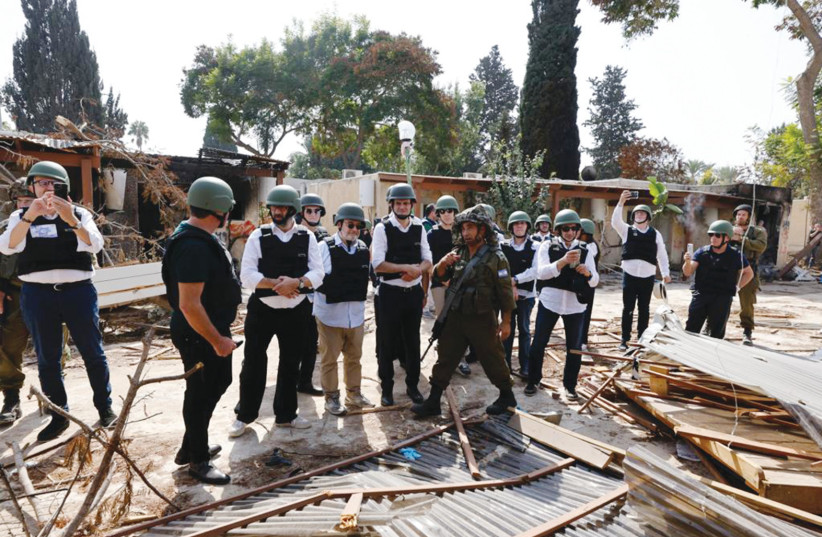The response by those who are finding ways to contribute to the care and safety of our soldiers, the displaced individuals and families, families of hostages, and all those who have been impacted as a result of this war, is nothing short of awe-inspiring. In the face of helplessness, we rally with action. For everyone who does go “out there” to do something, there are many who don’t know what to do or, more importantly, feel as if there is nothing they can do.
As a mental health practitioner, I often hear people say during this traumatic time that they wish they could do something meaningful to help. I need to remind them that in their act of getting up in the morning, going about their daily routine, functioning, and staying connected is something that can’t be minimized.
I am proud to be part of a group of mental health practitioners who play a role along with other health professionals who can be of assistance. I am encouraged to read articles by these professionals who help the reader understand what trauma is, how it is impacts us, and what we can do to cope. We work with those who have experienced direct or primary trauma, and those who are experiencing secondary trauma. As well, in more peaceful times, we run support groups for health and mental health practitioners who themselves experience secondary trauma as a result of their work.
For me to do this work, I constantly work on myself and my professional development. Living in this war has opened my eyes to a new ripple of impact on who I am as that professional.
From my first day of orientation in my post-graduate study and training to become a therapist, the students were made aware of the fact that we were expected to sign up for personal therapy sessions; not required but strongly recommended. Of course, this made sense. Professional boundaries and self-awareness are crucial in the therapeutic relationship.

The me who was entering my professional development as a therapist was that of a Jewish woman and a child of Holocaust survivors. My father arrived from Eastern Europe and fought in the 1948 war. I was born in Israel but, because of medical needs, my family moved to Montreal when I was six years old. I grew up in Canada and studied in the United States.
Over the years my relationship with Israel included experiencing the wars on television and the time my brother went to Israel to serve as a lone soldier. I was a student Zionist activist on campus. I was a student of the history of the Jewish people. I experienced antisemitism in the Diaspora.
Therapy in Israel today
Today, who I bring into the therapeutic relationship is an Israeli living in Israel, living in a war for survival, and watching the other ripple effects of this war on Jews all over the world.
For me to be the best professional I can be, I must be fully aware of the fact that I am in the same experience as those whom I am supporting. All responders need to remember that.
We are not doing post-trauma therapy. We are in trauma. This war has blurred the boundaries between who gives help and who needs help. The experience is unprecedented without points of reference.
Yet, an anchor does exist. We tell all who we work with, verbally and nonverbally, directly and indirectly, that we have an innate resilience to pull us through these traumatic times.
As trauma is a communal event that we experience as individuals, individual resilience can impact the community.
The writer is owner of Creative Arts Therapies Services.
